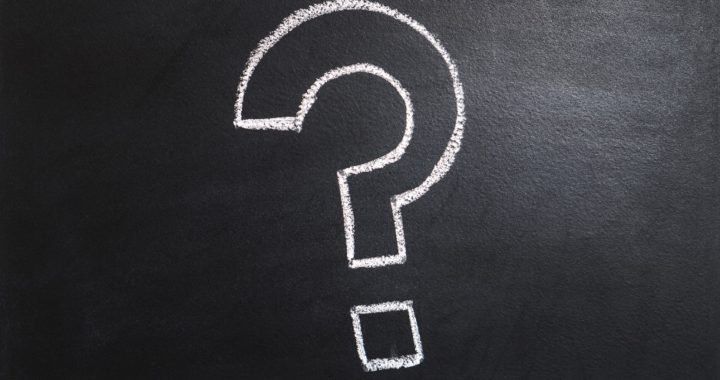“Why?”
My niece has this habit of following every single answer she gets with a “Why?”. Every thing she’s told has to have a reason and she has to understand it. And every understanding can still be followed by another why that has to be explained again. It used to stress me out a little, whenever I was the only “adult” (lol) around that she needed answers from, because I couldn’t always explain how certain things are the way they are just because.
For the longest while, I tried to find an answer for every question she had. Then I unconsciously shifted to making sure that I only give her answers that I knew I could later explain. There was still some pressure though, until that one time when I randomly decided to answer with “I don’t know”, and it was a mind-blowing moment of realization for me. Realizing that, all along, I had only been avoiding having to say this sentence. I would choose to squeeze my brain so hard for an answer, as long as I didn’t have to admit that I didn’t know. But when I did tell her I didn’t know, she so simply took that for an answer. It didn’t change anything about the questions she continued to ask, and it didn’t change anything about the way we bonded. It didn’t mean anything other than the fact that I just didn’t know the answer for that. Yet it still took me some time to be able to comfortably say it.
And it just scared me so much. The fact that I seemed to be falling into the same trap I was trying to run away from. That “adults” have to know everything. That “adults” have to have everything figured out. As a kid, I remember I always had certain expectations of myself for when I start belonging to certain age groups, because of how very well-composed the “adults” around me seemed to be back then. Yet being in their same spots a few years later, I’d keep realizing I’m nowhere near where I thought they were. Possibly because they weren’t even there themselves. But no one talks enough about that with kids. Very few “adults” would think it’s okay to look a kid in the eye and tell them that they, too, make mistakes. They, too, screw up sometimes. They, too, still have a lot to learn. They still have a lot to figure out, just like everyone else. And so kids often grow up with false ideas about who they‘re expected to be, and would only end up learning how to pretend they’re mastering this “adult” game as they move through life. And the cycle keeps going on and on.
Realizing that I was just as hesitant about admitting I didn’t know once I was in that same “adult” spot, made me want to practice more so I won’t fall back in there. There’s truly so much out there that I know absolutely nothing about, and that’s okay. I don’t know a lot about religion and science. I don’t know a lot about economics and politics. I don’t know a lot about animals, babies, sports, medicine, food, computers, mechanics or how our brains and bodies work. There’s so much going on with the world that I can never possibly know everything about. I don’t even know what I’m doing with my own life. And that’s just as okay. Because at least I know I’m able to look myself in the mirror every now and then, and word that. It’s hard because it needs constant reminders from within and from outside, before we fall back into avoiding every “I don’t know” that comes our way. And so we can continue teaching our kids it’s okay for them to admit they don’t know as well.
We unintentionally build so many barriers between us and the kids in our lives every time we decide to pretend we’re someone we’re just not. We lose the chance to let them see us for who we really are; humans. The only thing we really succeed on is, we manage to postpone witnessing that day when they’d eventually find out we’re not as perfect as we’ve been trying to make them believe. And there are only a few things in a child’s life that are more disturbing than having the image of their caregiver/role model get distorted for life.



